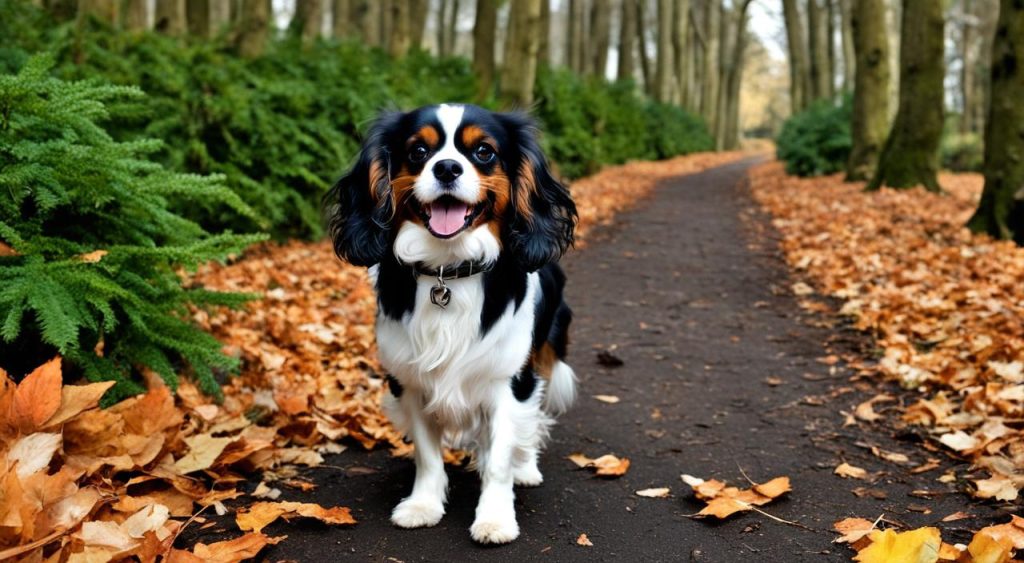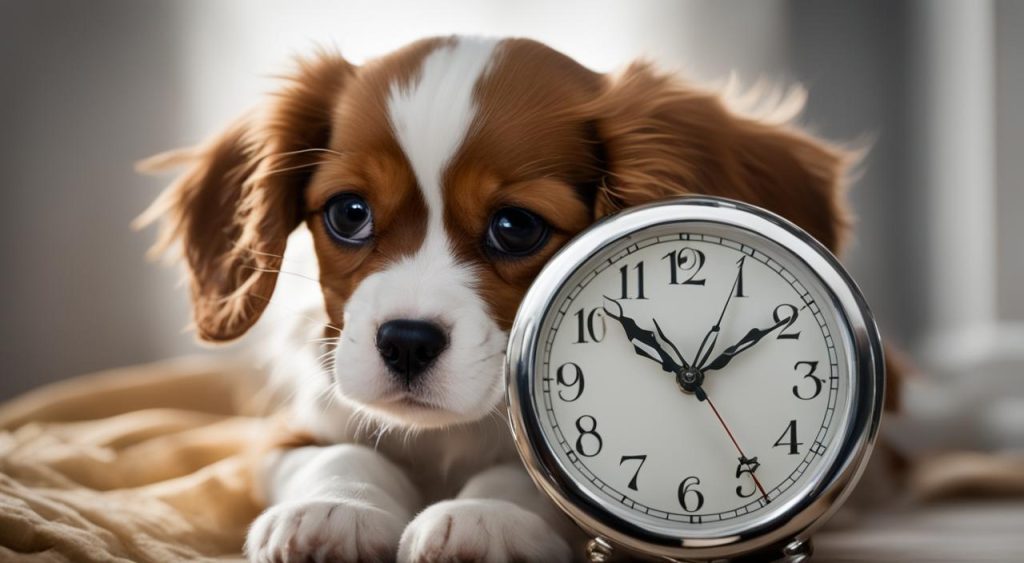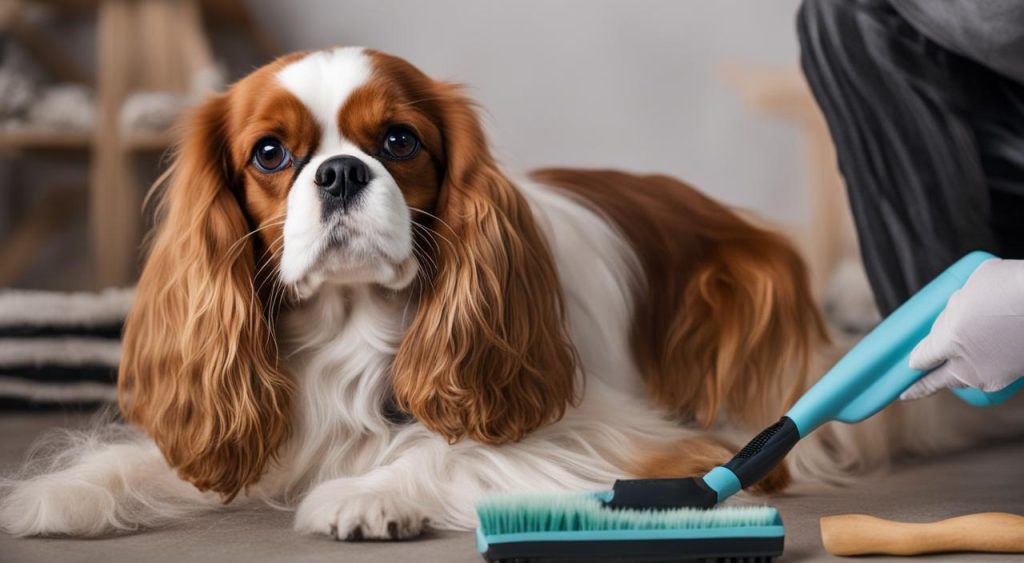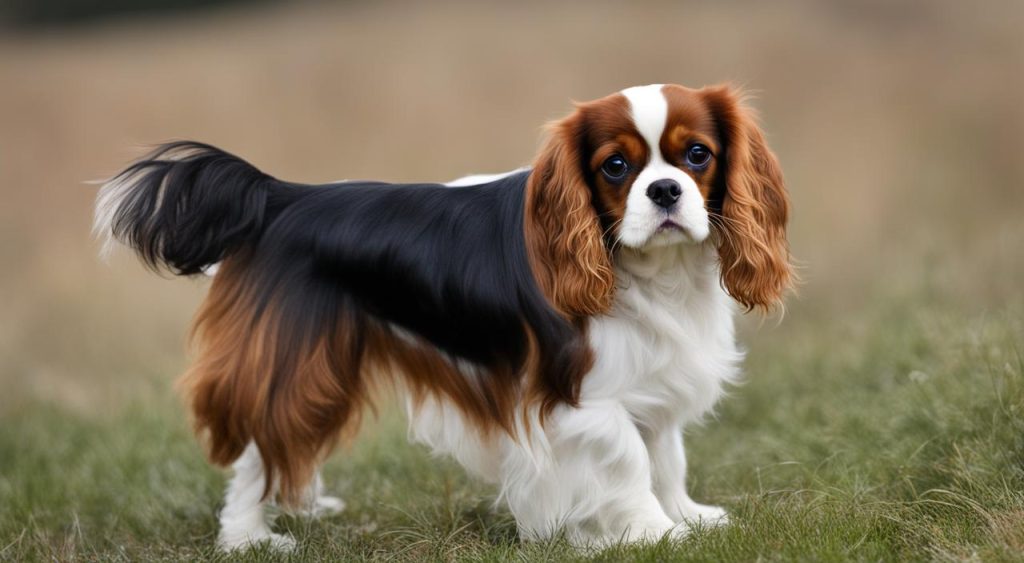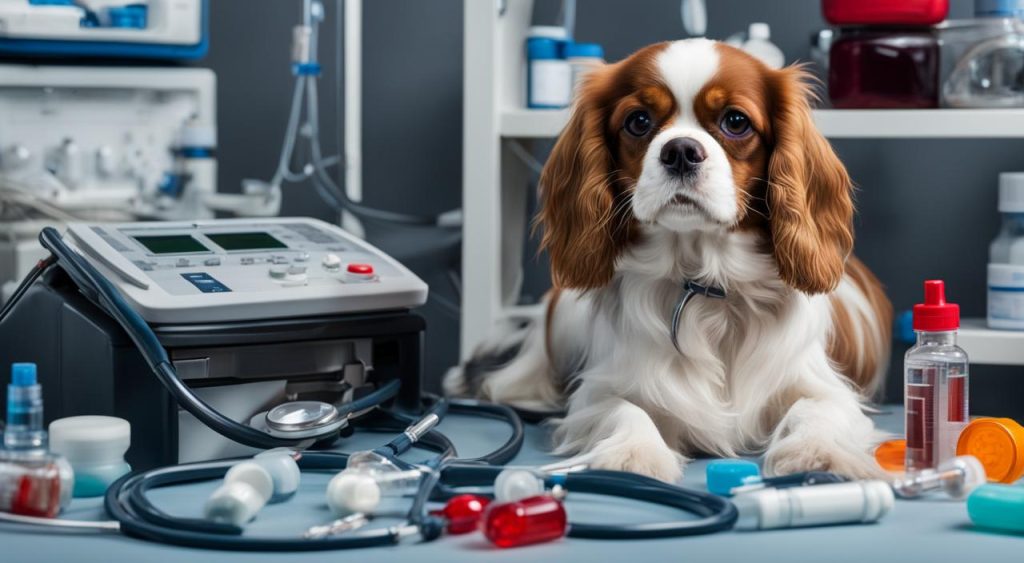Cavalier King Charles Spaniels are an adorable and popular breed known for their affectionate nature and beautiful appearance. If you are considering adding one of these charming dogs to your family, you may be wondering about their exercise needs. How much exercise do Cavalier King Charles Spaniels require to stay happy and healthy?
Cavalier King Charles Spaniels have moderate exercise needs and benefit from at least 1 hour of exercise per day. This can be achieved through various activities, such as daily walks, playtime in a securely fenced yard, or interactive games. It’s important to keep your Cavalier King Charles Spaniel active to prevent boredom and maintain their overall well-being.
Regular exercise not only helps keep your Cavalier King Charles Spaniel physically fit but also provides mental stimulation. Cavaliers enjoy exploring their surroundings and benefit from activities that engage their curious minds. Incorporating puzzle toys or training sessions into their routine can help keep them mentally sharp and satisfied.
It’s important to note that Cavalier King Charles Spaniel puppies have specific exercise requirements. Puppies have developing joints and muscles and should not be overexerted. Short, controlled play sessions and brief walks are suitable for young Cavalier King Charles Spaniel puppies. As they grow older and their bodies develop, their exercise levels can gradually increase until they reach full exercise potential, usually between 12 and 18 months of age. Consulting with your vet can provide guidance on the exercise needs of your individual Cavalier King Charles Spaniel.
Key Takeaways:
- Cavalier King Charles Spaniels require at least 1 hour of exercise per day to stay active and healthy.
- Exercise can be achieved through daily walks, playtime, or interactive games.
- Puppies have specific exercise needs and should not be overexerted.
- Incorporating mental stimulation, such as puzzle toys or training sessions, is beneficial for Cavaliers.
- Consult with your vet to determine the appropriate exercise routine for your Cavalier King Charles Spaniel.
Maintaining a Healthy Coat for Cavalier King Charles Spaniels
Cavalier King Charles Spaniels have a long, silky coat that requires regular grooming to keep it healthy and tangle-free. To ensure your Cavalier’s coat remains in top condition, it’s important to establish a grooming routine and provide proper care. Regular brushing is essential to remove any mats or tangles and to keep the coat looking its best.
Brushing your Cavalier King Charles Spaniel’s coat should be done at least a few times a week. This helps to prevent the hair from becoming matted or tangled. It also reduces the amount of shedding and keeps the coat shiny and healthy. When brushing, use a brush or comb specifically designed for long-haired dogs, such as a slicker brush or a wide-toothed comb.
In addition to regular brushing, Cavaliers may require professional grooming every few months. Professional groomers are trained to handle the specific grooming needs of Cavalier King Charles Spaniels, ensuring their coat is properly maintained and their overall appearance is kept at its best.
It’s not just the coat that requires attention, but also dental health. Regular tooth brushing is recommended for Cavalier King Charles Spaniels. This helps to prevent dental problems and promote good oral hygiene. Use a dog-specific toothpaste and brush their teeth twice daily to maintain their dental health.
By following a grooming routine, including regular brushing and professional grooming when necessary, you can ensure that your Cavalier King Charles Spaniel’s coat remains shiny, healthy, and free from tangles or mats. Remember, a healthy coat reflects a happy and well-cared-for dog.
Training and Socialization for Cavalier King Charles Spaniels
Cavalier King Charles Spaniels are known for their intelligence and eagerness to please, making them highly trainable dogs. Positive reinforcement training methods work especially well with Cavaliers, as they respond positively to praise, treats, and rewards.
When training your Cavalier King Charles Spaniel, it’s important to be consistent, patient, and use positive reinforcement techniques. This means focusing on rewarding desired behaviors rather than punishing unwanted ones. By doing so, you can build a strong bond with your dog and create a positive learning environment.
Early socialization is crucial for Cavalier King Charles Spaniels. Introduce them to various people, animals, and environments in a positive and controlled manner. This helps them develop good social skills and become well-adjusted dogs. Consider puppy classes or group training sessions to expose your Cavalier to different situations and help them interact with other dogs in a safe and supervised setting.
Obedience training is essential for Cavaliers to become well-behaved and obedient companions. Teaching basic commands such as sit, stay, and recall can help keep them safe in various situations. Additionally, advanced training can be a rewarding experience for both you and your dog. Cavaliers often excel in activities such as agility or obedience trials, showcasing their intelligence and versatility.
Remember, training and socialization should be ongoing throughout your Cavalier’s life. Regular practice and reinforcement of learned behaviors will help them maintain good manners and a positive disposition.
Conclusion
In conclusion, the exercise needs of Cavalier King Charles Spaniels are moderate, requiring at least 1 hour of physical activity per day. Regular exercise is essential for keeping them fit, healthy, and mentally stimulated. Whether it’s daily walks, playtime in the yard, or interactive games, ensuring they get adequate exercise is crucial for their overall well-being. It’s important to consult with your veterinarian to determine the specific exercise requirements for your individual Cavalier King Charles Spaniel.
Grooming is another significant aspect of caring for a Cavalier King Charles Spaniel. Their long, silky coat requires regular maintenance to prevent matting and keep it in optimal condition. Brushing their coat several times a week and scheduling professional grooming sessions every few months will ensure their coat remains healthy and beautiful. Additionally, maintaining good dental hygiene through regular tooth brushing is vital for their oral health.
When it comes to training, Cavalier King Charles Spaniels are intelligent and responsive to positive reinforcement methods. They enjoy learning new commands and tricks, making training sessions a pleasurable experience for both you and your furry companion. Early socialization and consistent training from a young age are important for their development into well-behaved and obedient dogs. With patience, consistency, and positive reinforcement, your Cavalier King Charles Spaniel can thrive in their training journey.

